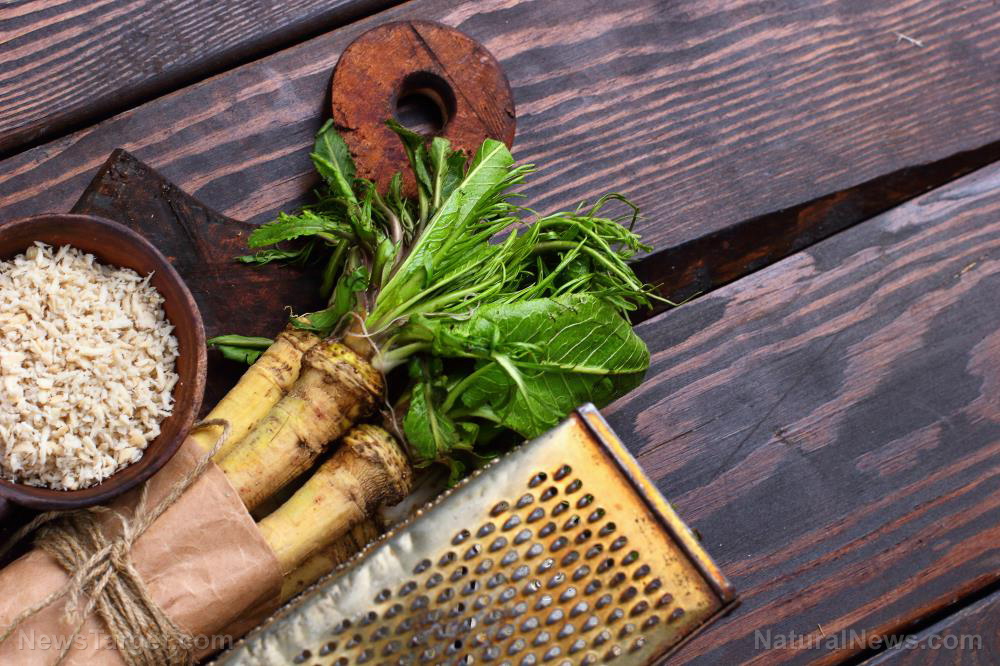Ladies, eat more pomegranates for better health
12/02/2019 / By Melissa Smith

When women reach middle age, they start to deal with symptoms of menopause, which can include bone loss, depression, mood swings, and declining estrogen levels. Surprisingly, women can find relief from pomegranates.
Pomegranates have been cultivated for more than 4,000 years. The fruit is often compared to an apple and is sometimes called a “Chinese apple.” Additionally, a pomegranate looks like the female ovary. It even served as a symbol of fertility for the Zoroastrians and other ancient cultures. Pomegranate’s similarities with the ovary go beyond the physical – the fruit provides one of the same estrogens as ovaries called estrone. If you’re already at the menopausal stage, here are several reasons to consider eating more pomegranates.
Reverse bone mineral loss
When reaching menopause, a hormone in women that protects bones called estrogen sharply declines – which can lead to bone loss. In a 2014 study published in the Journal of Ethnopharmacology, female rats that had their ovaries removed suffered accelerated bone loss, which is a common symptom of menopause. The researchers fed the rats with an extract of pomegranate juice and seeds for two weeks. After the pomegranate treatment, their bone mineral loss returned to normal rates.
Improve mood
Menopausal women experience mood swings because of hormonal changes. The same Japanese researchers in the 2004 study also discovered that the treatment with pomegranate extract reduced the rats’ levels of depression indicators. The researchers concluded that pomegranate could potentially be used as an effective remedy for women exhibiting a depressive state.
Support heart health
The rate of death from coronary heart disease in women after menopause is two to three times that of women the same age before menopause. Many studies reported that pomegranates may support cardiovascular health in women in different ways.
For one, pomegranates lower cholesterol levels. A 2000 study revealed that pomegranate juice contains high amounts of antioxidants that prevent low-density lipoprotein (LDL) or bad cholesterol from oxidizing. Oxidized cholesterol can damage the lining of the arteries, which can result in atherosclerosis.
Pomegranates can also lower blood pressure, according to a 2004 study by Israeli researchers. They found that drinking a glass of pomegranate juice every day may not only lower blood pressure, but also reduce cholesterol oxidation and reverse plaque buildup in the arteries. A study published in the Journal of Medicinal Foods also found that drinking pomegranate juice slowed down platelet aggregation and thinned the blood, helping to prevent clotting.
People with coronary heart disease may also benefit from drinking pomegranate juice. One study showed that drinking eight ounces of pomegranate juice daily for three months helped increase oxygen flow to the heart muscle in coronary patients. Other studies revealed that it improved heart health by increasing nitric oxide and reducing plaque and preventing plaque buildup in the arteries.
Fight against breast cancer
Laboratory studies revealed that the anthocyanins, flavonoids, and oils in pomegranate possess cancer-fighting effects against brain tumors. Pomegranate is also a natural adaptogen, so you don’t have to worry about excess estrogen and its side effects. It increases estrogen levels when low and blocks estrogens when the body has too much. Additionally, a study published in the Journal of Nutritional Biochemistry revealed that pomegranate extract may potentially prevent estrogen-dependent breast cancer. (Related: Pomegranates may prevent estrogen-driven breast cancer.)
More reasons to eat pomegranates
When buying pomegranates, choose those that have unblemished, shiny skins and feel heavy for their size. They contain the juiciest seeds, which can be made into juice. Adding pomegranate juice to your diet may also reduce your risk for chronic disease and inflammation. It is also a great way to get essential nutrients and antioxidants.
Pomegranates are a good source of fiber, vitamins A and C, and some B vitamins. They also offer minerals like calcium, iron, and potassium. Most of the health benefits of pomegranate may be attributed to its compounds punicalagin and punicic acid. Pomegranate’s antioxidants make it an even healthier fruit. It has antioxidant activity three times higher than that of red wine and green tea.
Did you know that the pomegranate is technically a berry? Learn more about this superfruit at Fruits.news.
Sources include:
Tagged Under: alternative medicine, anticancer, beatdepression, bone health, breast cancer, cardiovascular health, disease treatments, food cures, food is medicine, Fresh, fruits, functional food, groceries, heart health, Menopause, mood swings, natural cures, natural medicine, organics, Pomegranates, prevention, superfruits, women's health
RECENT NEWS & ARTICLES
COPYRIGHT © 2017 NATURAL CURES NEWS



















